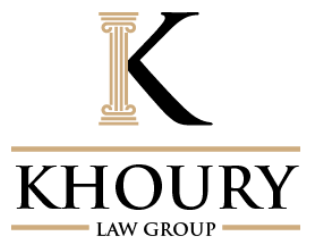Compensatory and Punitive Damages in Civil Litigation
When it comes to civil litigation, one of the most common questions people ask is about damages—specifically, the difference between compensatory and punitive damages. These two types of damages serve different purposes, and understanding them can help clarify how compensation works in legal cases.
We’ll break down what compensatory and punitive damages are, when they are awarded, and why they matter in civil lawsuits.
What Are Compensatory Damages?
Compensatory damages are designed to compensate the plaintiff for the actual harm or loss they suffered as a result of the defendant’s actions. These damages aim to put the injured party back in the position they would have been in had the wrong not occurred. In other words, compensatory damages are about making the plaintiff whole again.
There are two main types of compensatory damages:
- Economic Damages: These are tangible, calculable damages that cover measurable financial losses, such as:
- Medical expenses (past and future)
- Lost wages (due to injury or time off work)
- Property damage (repair or replacement of damaged items)
- Loss of earning capacity (for long-term or permanent injuries)
- Non-Economic Damages: These are more subjective and cover losses that don’t have a specific monetary value. Examples include:
- Pain and suffering (physical and emotional distress caused by the injury)
- Loss of consortium (loss of companionship, affection, or support from a spouse or partner)
- Emotional distress (anxiety, depression, or other mental health issues caused by the incident)
Compensatory damages are the most common form of compensation awarded in personal injury cases, contract disputes, and other civil lawsuits.
Example of Compensatory Damages:
Imagine a car accident where one driver runs a red light and causes another driver to suffer a broken leg. The injured driver may be awarded compensatory damages for:
- Medical bills for hospital visits and surgeries
- Lost income if they had to take time off work
- Pain and suffering from the injury
What Are Punitive Damages?
While compensatory damages are meant to reimburse the plaintiff for their loss, punitive damages serve an entirely different purpose. Rather than compensating the plaintiff, punitive damages are designed to punish the defendant for outrageous, malicious, or extreme behavior and deter others from engaging in similar conduct in the future.
Punitive damages are not awarded in every case. They are reserved for situations where the defendant’s actions are considered particularly egregious—usually involving intentional misconduct or gross negligence.
When Are Punitive Damages Awarded?
Punitive damages are typically awarded in cases involving:
- Fraud (deliberate deception to gain unfair advantage)
- Malice (intentional harm or ill will)
- Reckless disregard for safety (e.g., drunk driving or dangerous corporate practices)
- Gross negligence (extreme lack of care that shows disregard for others’ safety)
Unlike compensatory damages, which are based on the actual harm the plaintiff suffered, punitive damages are awarded based on the defendant’s conduct.
Example of Punitive Damages:
Consider a case where a pharmaceutical company knowingly sells a defective drug, despite being aware of the risks. If the company’s actions were deemed to be grossly negligent or intentionally harmful, the court might award punitive damages to not only punish the company but also to send a strong message that such reckless behavior will not be tolerated.
Key Differences Between Compensatory and Punitive Damages
| Aspect | Compensatory Damages | Punitive Damages |
|---|---|---|
| Purpose | To compensate the plaintiff for actual loss or harm | To punish the defendant for egregious behavior and deter others |
| Calculation | Based on the actual financial loss or harm suffered | Based on the defendant’s conduct, not the plaintiff’s loss |
| Examples | Medical expenses, lost wages, pain and suffering | Awarded in cases of fraud, gross negligence, or intentional harm |
| Awarded in Every Case? | Yes, in most cases involving harm or injury | No, only in cases of extreme wrongdoing or malice |
| Amount | Limited to the actual losses incurred | Can be substantial, often higher than compensatory damages |
How Are Punitive Damages Calculated?
Unlike compensatory damages, there’s no fixed formula for calculating punitive damages. Courts typically take into account:
- The severity of the defendant’s misconduct
- The financial condition of the defendant (to ensure the punitive damages are substantial enough to serve as a deterrent)
- The degree of harm caused by the defendant’s actions
- Whether the defendant has been previously involved in similar conduct
Punitive damages can sometimes be significantly higher than compensatory damages. For instance, a defendant may be required to pay 2 or 3 times the amount of compensatory damages in punitive damages, although the amount is usually capped by law in certain states or countries.
Why Are Punitive Damages Controversial?
Punitive damages are a topic of much debate in the legal world. Some argue they are necessary to keep corporations and individuals accountable for extreme or reckless behavior. However, others contend that punitive damages can be overly harsh, especially when awarded in large amounts, and may lead to unfair financial consequences for defendants.
In response to concerns, many states have placed caps on the amount of punitive damages that can be awarded. The U.S. Supreme Court, in a 2003 decision, ruled that punitive damages should generally not exceed 9 times the amount of compensatory damages in most cases, though this is not a hard-and-fast rule.
Conclusion: Compensatory vs. Punitive Damages
To sum it up, compensatory damages are designed to restore a plaintiff to their pre-injury state by covering actual losses, while punitive damages are intended to punish and deter particularly wrongful conduct. Both types of damages play crucial roles in civil litigation, but they serve distinct purposes and are awarded under different circumstances.
Understanding the difference can help you better navigate the legal process if you ever find yourself involved in a civil lawsuit, whether as a plaintiff seeking justice or a defendant defending against a claim.
Need legal help? In California, navigating legal challenges, whether they involve personal injury, workers’ compensation, criminal defense or civil litigation, can be overwhelming. Khoury Law Group is here to provide the critical legal support you need. As a leading advocate for individuals facing legal battles, our experienced attorneys understand the complexities of the legal system and are committed to fighting for your best interests. With personalized legal strategies and compassionate support, we are dedicated to achieving the justice and compensation you deserve.
CONTACT US FOR HELP. Call us at (888) 354-6879 or fill out the form on our Contact page.





